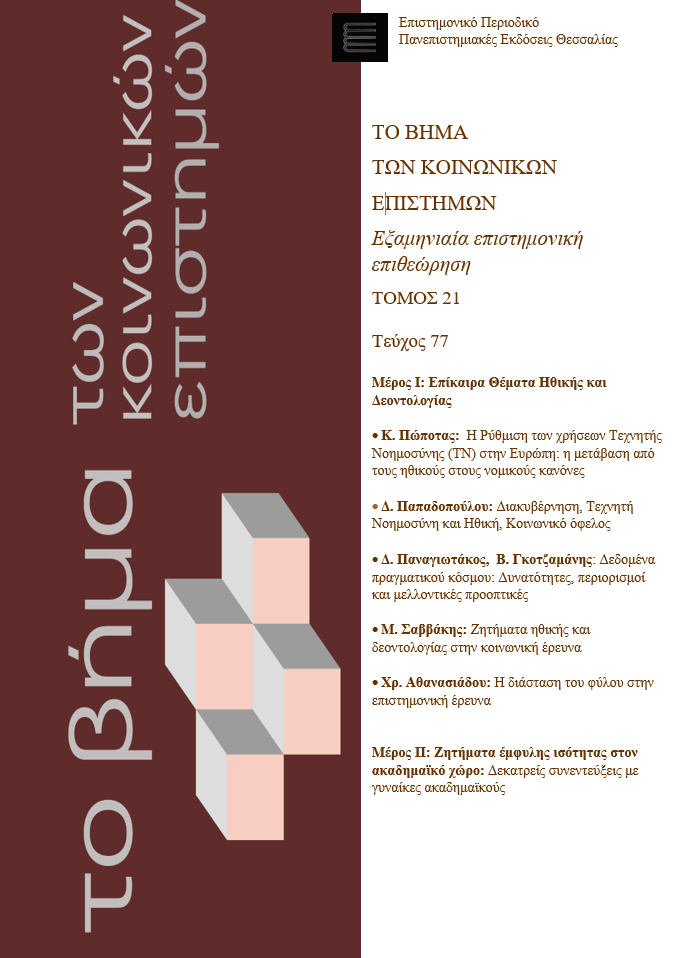Δεδομένα πραγματικού κόσμου: Δυνατότητες, περιορισμοί και μελλοντικές προοπτικές
DOI:
https://doi.org/10.26253/heal.uth.ojs.sst.2023.1931Abstract
Τhe increasing use of the internet, smart phones and other wearable devices with data recording, sending, and analysis capabilities, and a multitude of other applications that become available with new technologies have created a new source of data, the real-world data. These data have the potential to be used to confirm findings from clinical studies or basic research, but also to address issues that would not be possible to be dealt with using the traditional methods, with the ultimate goal of creating medical indications and guidelines. However, these data have some inherent limitations such as heterogeneity, inconsistency, non-representativeness of the general population and, in general, their lower quality compared to data from clinical studies, due to their large volume, the uncertified reliability of recording media and the variety of their availability in different population groups. For this reason, the use and further development of complex and innovative methods such as machine learning and artificial intelligence are required to analyze them and draw safe conclusions from them. Although much research is still needed to perfect the analysis techniques, there are already examples of real-world data being used to address challenges such as the COVID 19 pandemic, and the expectation is that in the future such data will play an increasingly important role in decision-making for public health.

